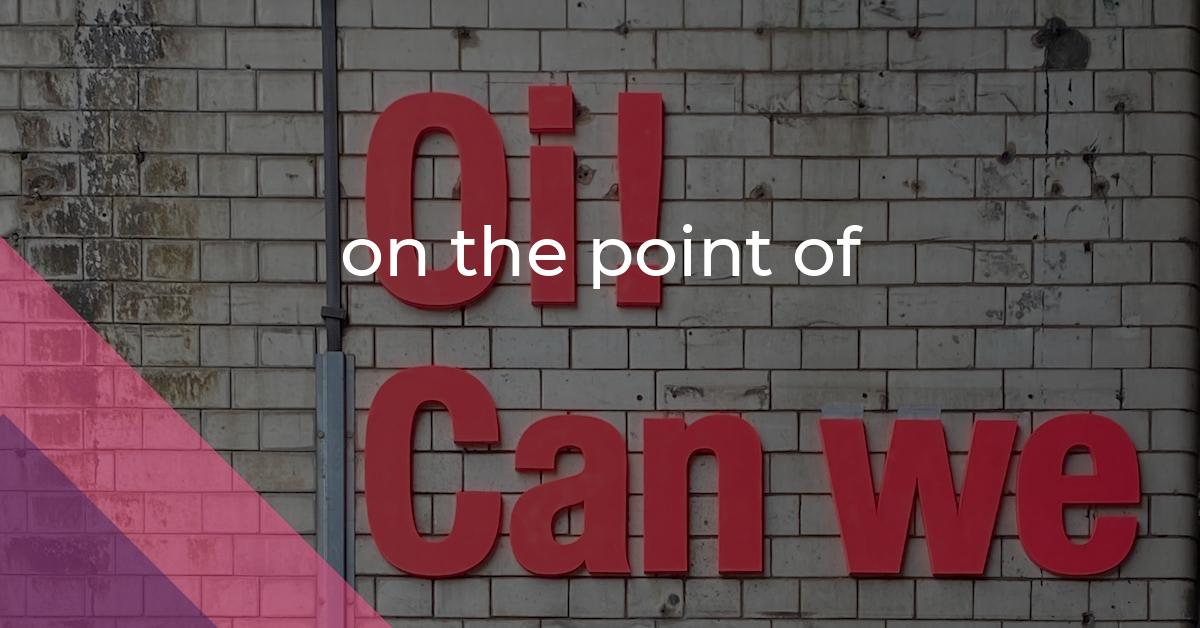on the point of: Idiom Meaning and Origin
What does ‘on the point of’ mean?
Idiom: *on the point of*
Meaning: About to do something or reach a particular state or condition.

Idiom Explorer
The idiom "verge on" means to be very close to something, usually in a negative or extreme way. It implies approaching a certain point or state, often with the potential to cross a boundary or reach a limit.
The idiom "right on" is used to express agreement or approval with something that has been said or done. It is an informal phrase often used in casual conversations to indicate support or enthusiasm.
The idiom "quick off the mark" means to react quickly or be ready to take action immediately.
The idiom "on the way" means that something is currently in progress or about to happen. It suggests that something is not yet completed or arrived, but is in the process of getting there.
The idiom "on-the-spot" means to be in a situation where decisions or actions must be made immediately, without any time to prepare or think about it.
The idiom "on the spot" means to do something immediately or to be put in a situation where one is required to perform or make a decision without any preparation or advance notice.
The idiom "on the money" means to be exactly correct or accurate.
The idiom "on the mark" means that something or someone is accurate or correct in their assessment or prediction.
The idiom "on the edge of one's seat" means to be in a state of excitement, anticipation, or suspense, eagerly waiting for something to happen.
Decoding the Essence
The idiom "on the point of" is a versatile phrase commonly used in the English language. It can convey various meanings and contexts in a clear and concise manner. Although its exact origin is uncertain, its usage and understanding have been firmly established.
One of the key meanings of the idiom "on the point of" is to indicate a moment or state of being very close to or about to do something. It implies anticipation or imminent action. For example, one might say, "I was on the point of leaving when she arrived," suggesting that they were just about to leave before the arrival of another person. This usage often implies a sense of timing and immediacy.
Another related idiom, "on the cusp," has a similar meaning to "on the point of." It also refers to being on the brink or verge of something. For instance, one could say, "She was on the cusp of making a breakthrough in her research," indicating that she was about to achieve a significant advancement. This phrase emphasizes the proximity and potential of a forthcoming event.
Furthermore, the idiom "on the point of" can also be used to express the idea of being on the verge of an emotional or mental state. For instance, someone might say, "She was on the point of tears," suggesting that the person was very close to crying or becoming emotional. This usage highlights the intensity and proximity of an emotional experience.
A related idiom, "about to," also conveys a sense of being on the brink of something. It emphasizes the imminent nature of an action or event. For example, one could say, "He was about to give up when he finally found the solution," indicating that he was very close to giving up before finding the solution. This phrase underscores the nearness and readiness for a specific action or outcome.
Additionally, the idiom can be employed to convey a sense of being on the brink of a significant change or event. A common phrase using this idiom is "on the point of no return," which indicates a situation where a decision or action has been taken that cannot be reversed or undone. This usage signifies a critical juncture or irreversible state.
Another related idiom, "verge on," has a similar meaning to "on the point of." It also implicates being on the brink or threshold of something. For instance, one could say, "His behavior verged on rudeness," suggesting that his behavior was very close to being rude. This phrase underscores the proximity and similarity to a specific state or condition.
It is worth noting that the idiom "on the point of" is versatile and can be combined with various verbs to convey specific meanings. For example, "on the point of collapse" suggests a state of imminent collapse, while "on the point of victory" implies being very close to achieving success.
Furthermore, the idiom "on the point of" can be related to the phrase "on the mark." "On the mark" means being exactly right or accurate. In a similar way, "on the point of" can imply being at the precise moment or crucial stage. For example, one could say, "He was on the point of making a groundbreaking discovery," indicating that he was on the verge of making a significant breakthrough. This phrase emphasizes the precision and significance of a particular moment.
The idiom "on the point of" is widely used in the English language to express moments of anticipation, emotional proximity, and critical junctures. Its flexibility and versatility make it a valuable asset in communication. Though the exact origins of this idiomatic expression remain elusive, its significance in conveying precise meanings is unquestionable.
Example usage
Examples of how the idiom *on the point of* can be used in a sentence:
- She was on the point of giving up on her dream, but then she received an unexpected offer.
- He was on the point of leaving for his vacation when he realized he had forgotten his passport.
- They were on the point of signing the contract when they discovered a major flaw in the agreement.
More "Temporal" idioms



